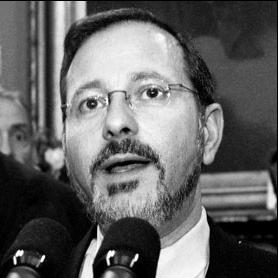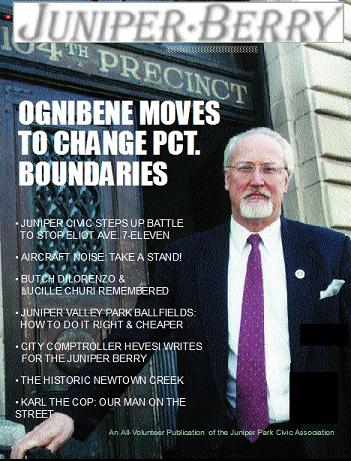It should never have happened. An elderly woman was recently forced to leave her home in the Juniper Valley Park section of Middle Village, Queens, because she could no longer hear the constant roar of jets overhead. Tragically, this woman had moved to Juniper Valley from Staten Island to escape jet noise. Stories like hers are not uncommon. As Chairman of the Transportation Committee, I am committed to seeing that they don't become the norm.
It's no surprise that noise is the number one complaint on the city's Quality of Life Hotline. People are simply fed up with noise, especially air traffic noise. Until now, the City Council and citizen advocates have been styxnied by the one federal agency responsible for regulating this area, the Federal Aviation Administration. However, two new health studies and a recent court ruling give city officials and citizen advocates new hope for meaningful action at the local and federal levels.
Placing the FAA in charge of regulating air traffic noise is like putting a fox in charge of the henhouse. The FAA's job is to promote the aviation business and make it safer, not quieter. That's why I recently sponsored a resolution, passed by the City Council, calling for the reestablishment of the Office of Noise Abatement and Control within the Environmental Protection Agency
Before it was abolished by President Reagan, ONAC studied many noise-related issues including the environmental impact of airports on surrounding communities. Last year, Congress introduced the Quiet Communities Act which calls for this offlce to be refunded My resolution encourages Congress to act quickly on this measure. It is also important for people who are concerned about air traffc noise to urge their representatives to support this bill.
In addition to calling for meaningful federal action, I am committed to fighting air traffc noise at the local level. There is growing evidence that noise from airports and heliports and the pollution they cause negatively affects people's health' especially the healtb of senior citizens and children. Federal action alone has so far failed to protect the health and wellbeing of our most vulnerable citizens
For example, the Federal Aviation Administration believes that switching the U. S. aviation fieet from Stage II planes to less noisy Stage III jets by the year 2,O07 will solve much of the air traffic noise problem for residential communities. However even if the agency meets its goal, any noise reduction willmost likely be offset by an expected 36 percent rise in air trafftc volume by the target date.
The projected increase in the total number of flights is particularly disturbing given the results of two recent studies. In one study, a team of researchers led by Gary Evans of Cornell University found that the constant roar of planes over a school seriously affected the health of children, including raising their blood pressure and stress hormones. A second study spearheaded by Dr. Arline Bronzaft, a leading expert on the adverse effects of noise on health, found that people living in flight paths did not get used to the noise and reported having trouble sleeping and concentrating
In light of these studies, I am happy to report that a recent court ruling has expanded the city's authority to restrict a heliport operating on Manhattan's lower East side. This rulling could have larger implications for airports. While some of the measures used to curb noise at heliports, such as curfews, may not be feasible for regional airports, there are other ways for the city to limit air traffic noise and pollution.
As Chairman of the Transportation Committee, I am planning to hold a hearing on helicopter noise and heliports, as well as a separate hearing on the city's noise code. Parts of the code are now weak or obsolete, while others are not enforced The upcoming hearing will look at ways to lessen the impact of air traffc noise and pollution on residential neighborhoods. It will also consider revisions to the code that would further regulate helicopter noise.
On April 29, New York City will host International Noise Awareness Day. In order to raise awareness about this serious quality of life issue, I am co-sponsoring a poster contest with the League for the Hard of Hearing for children who attend schools near regional airports. The contest asks the children to show how noise affects hearing and health and to explore ways to reduce pollution.
Action now at the local and federal levels will affect our futurequallity of life. I am committed to protecting the most vulnerable members of our communities, senior citizens and children, from the harmful effects of excessive noise and pollution I will continue fighting for a quieter future for everyone.



